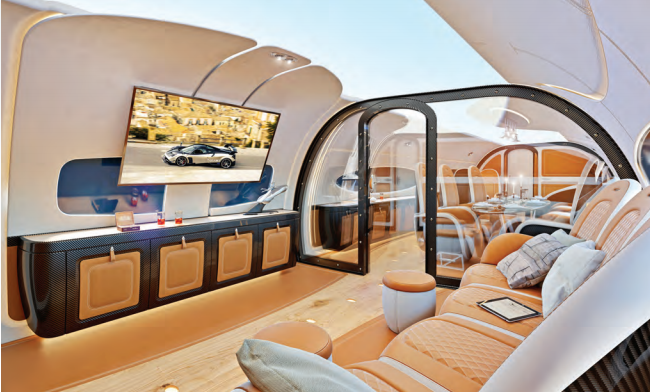David Velupillai
Biz@India
June 2017
Not only is now a good time to invest in corporate jets, it has been seen that companies that utilise the maximum potential of these jets tend to do better financially, says Velupillai.
David Velupillai, the marketing director of Airbus Central Entity, tells Biz@India why now is the right time to buy corporate jets while detailing the best features of their jets. Whether it is the capacity for personalisation or superior quality of products used, Velupillai enunciates what sets their jets apart from the rest of the ones available in the market.
What are some of the new developments in the Airbus Corporate Jets (ACJ) range? What are the most popular models?
ACJ has several new models under way, each of which capitalises on new generation engines and sharklets. These aircraft include: • ACJ319 neo – 8 passengers 6,750 nm/12,500 km or 15 hr • ACJ320 neo – 25 passengers 6,000 nm/11,100 km or 13 hr • ACJ330 neo – 25 pax 9,400 nm/17,400 km or 20 hr • ACJ350 XWB ULR – 25 pax 10,800 nm/20,000 km or 22 hr. The most popular model in service today is the ACJ319, because it has been around the longest and has good range.
What are the important factors that drive the market for luxury/corporate jets? How big is the market for the same, and which countries are leading this?
Corporate jets bring many benefits, including helping customers make more productive use of their time, to reach places with little or no airline service, and privacy and confidentiality. There are more than 180 ACJ in service today, and they are flying on every continent, including Antarctica. The main markets for ACJ are Asia-Pacific, Europe and the Middle East.
How much customisation does Airbus allow its customers for the design and outfitting of the aircrafts?
ACJ cabins can be fully customised to suit how customers will use the aircraft, as well as according to their tastes and preferences. They are a good starting point for great designs, because they have the widest and tallest cabins of any corporate jet. A recent collaboration with Pagani, the makers of hypercar, led to the Infinito cabin design, which combines man-made materials such as carbon fibre, with natural ones, such as leather.
What are some of the models that have found success as both commercial and corporate jets?
Airbus makes the world’s most modern aircraft family, and all of them have found a role as corporate jets.
What sets apart the ACJ from contemporaries such as Boeing?
ACJ have more modern designs, and have the best cabins. They thus deliver the best travel experience, as well as justify their cost well and are supported by a world-class network that is second to none. ACJ also come with many features as standard, such as pilot-friendly common cockpits and fly-by-wire controls, extensive use of weightsaving materials such as carbon fibre, and time and cost-saving centralised maintenance. Options such as an Onboard Airport Navigation System (OANS) – like the GPS in your car – and a Runway Overrun Prevention System (ROPS) are also available.
Has the market fully recovered from the 2008 financial crisis? Which markets are now driving the growth? How is the Indian market performing and what is the potential in this market?
The market is still challenging for all corporate jet manufacturers. However, ACJ is continuing to invest in new models for the future and sees this market continuing to grow in the long term. ACJ has a presence in India, which is a large country and an important potential market. Business aviation will continue to grow in India, provided that facilities such as business aviation terminals, take-off and landing slots, and prompt permission for flights are made available.
Research suggests that companies making regular use of corporate jets tend to grow faster and be more profitable. So if many large companies in a country make good use of corporate jets, then it is no exaggeration to say that corporate jets can literally contribute to the economic growth of a whole country as well as bringing benefits to many communities.
Since Gulf Cooperation Council (GCC) nations have been important customers for corporate and luxury jets, how has this demand been hurt by the very low crude prices?
Low crude oil prices are attractive to airline passengers, because they help to keep air-travel affordable. However, they do also lead to less disposable income for oil-producing countries, which can reduce spending power in the short term.
Corporate jets nevertheless remain good investments and, with low oil prices, there has never been a better time to buy them.











